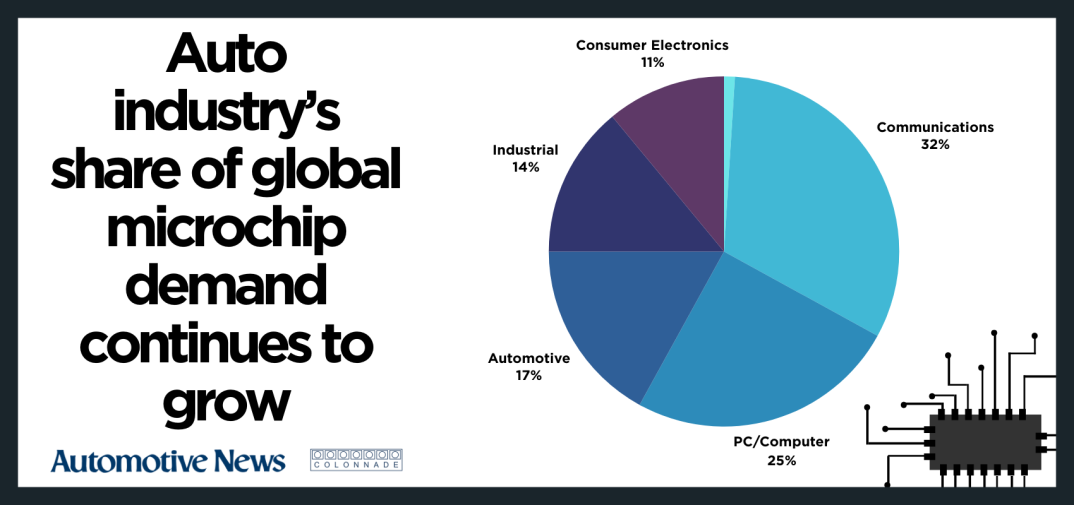Auto Industry’s Share of Global Microchip Demand Continues to Grow

The auto industry was responsible for 17% of global microchip purchases in 2023, up 3% year-over-year, according to World Semiconductor Trade Statistics (WSTS). This puts it ahead of consumer electronics and industrial sectors, behind only communications (32%) and PC/computer (25%). As vehicles become more complex, the need for chips has grown, with today’s cars containing between 1,000 and 3,500 microchips, according to the Semiconductor Industry Association.
Chip production delays continue to challenge the auto market despite the rising demand. The semiconductor shortage of the past few years has eased significantly, but many auto manufacturers still need to prioritize where chips are deployed. As Sam Fiorani, VP of Global Vehicle Forecasting at AutoForecast Solutions states, “Automakers are working around shortages by eliminating an option or a feature. Nonessential features such as heated steering wheels might be cut from certain models.”


